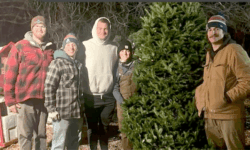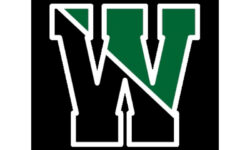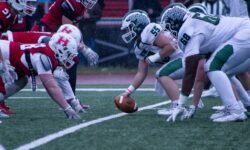By James Kinneen
Hometown Weekly Reporter
Westwood is currently under increased, mandatory outside watering restrictions due to a lack of rainfall and the shutting off of Well Five. In Westwood, you can now only water your lawn on Tuesdays from 6-9 a.m., and from 6-9 p.m. - although you can use a handheld hose to water flowers or vegetables at any time.
But while people understand the rules, how many Westwood residents have any clue where their water comes from, what happens if it stops raining even more, or how golf courses keep their fairways so green when they can’t water their lawn more than once a week? To figure it out, I contacted Executive Director Eileen Commane of the Dedham-Westwood Water District.
How rough a shape is Westwood in, and how did we get here? While it would be extremely 2020 for us to be in the midst of a low water Armageddon, that’s not the case. In fact, you probably don’t even remember that four years ago, we were in a far worse water situation.
“You may be aware it has not rained much this summer,” Commane explained. “In fact, yesterday, the Commonwealth declared a significant drought level for all of Massachusetts.” But as far as whether this is unprecedented? “No, in fact, back in 2016, we had I believe an even more serious drought. So even though we have restricted outdoor watering to one day per week, in the drought of 2016, I think it was on the 25th of August of that year, we completely restricted outdoor lawn sprinkling on every day.”
COVID might not be helping the situation. When I pondered if COVID was another culprit due to more people gardening or caring about their lawn while stuck at home - or maybe just less people commuting to Boston, meaning more Westwood residents using town water every day - Commane said: “It certainly is possible. We don’t really know that information on who is at home more or not, but it seems reasonable.”
But where does Westwood’s water come from? The Quabbin? Nope, the answer is wells along the Charles and Neponset rivers.
“We have ground water wells along the banks of the Charles and Neponset Rivers. With a groundwater supply, as you can imagine when it stops raining but we continue to use water from those wells, over time the ground water level starts to drop and eventually we just can’t draw as much water as we could when the ground water table was high. And that’s really the situation we are in.”
What’s the advantage of having our own water rather than get it from the Quabbin Reservoir like so many nearby towns?
“It is less expensive for us to obtain and treat our own water supply as opposed to purchasing it. Yes, it is a little less expensive, but it’s also just how the towns, going back 100 years when they were starting to have a public system, did it.”
But what if Westwood didn’t care about the Neponset and the Charles, went rogue, and decided they’d rather have the greenest lawns in Massachusetts than deal with restricting water? Unfortunately, that’s not an option.
“It is a combination of the water district commissioners and staff that make the decision on water restrictions, however, our largest well - which we call the Fowl Meadow Well, or Well Five - is our largest producing well and one of the last wells we built. It was built in 1996. At the time it was built, the Commonwealth put a condition on the use of the well. And that condition is, if the Neponset flow gets to what they deemed a critically low level, we would be required to shut the well off. And we did shut it off on Monday because the water in the Neponset did reach that critical level. We have 17 wells, so we have a lot of wells, but that one puts out the most amount of water. So, we have to shut it off.”
On the other hand, if Westwood runs into a huge issue with water, they can buy some from the Massachusetts Water Resources Authority (MWRA). In fact, in some years, Westwood has bought water from the MWRA (which uses the Quabbin Reservoir, the Wachusett Reservoir, and the Ware River) to forestall the implementation of water restrictions. If Westwood had an emergency, the MWRA connection is the way they would deal with it.
So how are the golf courses so green? No great investigative journalist scoop here. They have their own wells.
“We have two golf courses, one in Dedham and one in Westwood, but neither one of them uses our water for their greens irrigation. They have their own wells.”
What if someone refused to stop watering their lawn, though? First you would get a warning, then a fine. But if you really refused to stop and had the money to laugh at the price of the fines, then what would Westwood do?
“Well, it’s never come to that. At some point we can actually terminate water service, but we would never want to do that, of course.”
Yes, we might have COVID-19 and West Nile Virus here in Westwood. But at least we’ve also got water.
“There’s still quite a bit of water use going on. We’re not going to run out of water.”

























